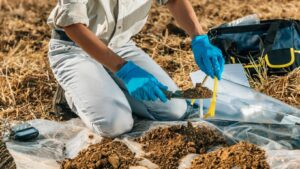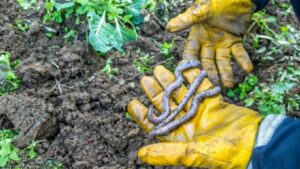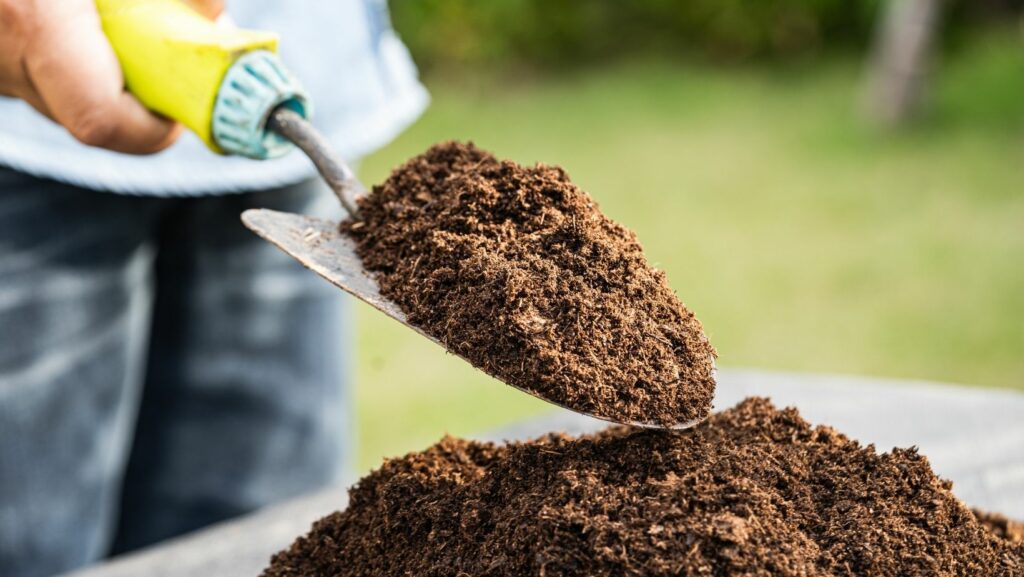 Organic living soil is not just dirt; it’s a vibrant ecosystem teeming with life. It’s a key player in sustainable gardening practices, promoting healthy plant growth without the need for synthetic fertilizers or pesticides. In this article, we’ll delve into the world of organic living soil and explore its benefits for both plants and the environment. By nurturing the soil with organic matter, beneficial microbes, and natural amendments, gardeners can create a thriving habitat where plants can thrive naturally. This living soil acts as a powerhouse of nutrients, supporting plant health, resilience, and overall vitality. Understanding the principles of organic living soil is essential for anyone looking to cultivate a more sustainable and eco-friendly garden.
Organic living soil is not just dirt; it’s a vibrant ecosystem teeming with life. It’s a key player in sustainable gardening practices, promoting healthy plant growth without the need for synthetic fertilizers or pesticides. In this article, we’ll delve into the world of organic living soil and explore its benefits for both plants and the environment. By nurturing the soil with organic matter, beneficial microbes, and natural amendments, gardeners can create a thriving habitat where plants can thrive naturally. This living soil acts as a powerhouse of nutrients, supporting plant health, resilience, and overall vitality. Understanding the principles of organic living soil is essential for anyone looking to cultivate a more sustainable and eco-friendly garden.
Organic Living Soil
 Organic living soil is a vibrant ecosystem essential for sustainable gardening practices. It goes beyond being mere dirt; it is a complex habitat that fosters plant growth while promoting environmental well-being. By incorporating organic matter, beneficial microbes, and natural amendments, gardeners can create a flourishing environment for their plants. This natural approach not only supports plant health but also aids in maintaining the overall balance of the surrounding ecosystem.
Organic living soil is a vibrant ecosystem essential for sustainable gardening practices. It goes beyond being mere dirt; it is a complex habitat that fosters plant growth while promoting environmental well-being. By incorporating organic matter, beneficial microbes, and natural amendments, gardeners can create a flourishing environment for their plants. This natural approach not only supports plant health but also aids in maintaining the overall balance of the surrounding ecosystem.
Components of Organic Living Soil
Organic living soil is a complex ecosystem that thrives on natural processes and ingredients. Understanding the key components that contribute to its vitality is essential for successful organic gardening practices.
Composting
Composting is a fundamental process in organic living soil management. It involves the breakdown of organic materials into nutrient-rich humus through the action of microorganisms. These microorganisms, such as bacteria and fungi, play a crucial role in decomposing organic matter and releasing essential nutrients for plant uptake. By adding compost to the soil, gardeners enrich the microbial diversity and nutrient content, fostering a healthy soil structure for robust plant growth.
Decomposition
 Decomposition is a natural process in organic living soil where organic matter, such as dead plants or leaves, is broken down by decomposers like earthworms and insects. This breakdown releases nutrients into the soil, feeding the soil food web and supporting plant growth. Decomposition contributes to the continuous recycling of nutrients in the soil, ensuring a sustainable and self-sufficient ecosystem. Gardeners can promote decomposition by mulching, which provides organic matter for decomposers to thrive and enrich the soil with essential nutrients.
Decomposition is a natural process in organic living soil where organic matter, such as dead plants or leaves, is broken down by decomposers like earthworms and insects. This breakdown releases nutrients into the soil, feeding the soil food web and supporting plant growth. Decomposition contributes to the continuous recycling of nutrients in the soil, ensuring a sustainable and self-sufficient ecosystem. Gardeners can promote decomposition by mulching, which provides organic matter for decomposers to thrive and enrich the soil with essential nutrients.
Importance of Microorganisms in Organic Living Soil
Exploring the significance of microorganisms in organic living soil unveils their pivotal role in fostering a thriving ecosystem beneficial for plant growth and environmental sustainability. Microorganisms, such as bacteria, fungi, and protozoa, play a crucial part in maintaining soil health by contributing to nutrient cycling, enhancing plant immunity, and improving soil structure.
- Nutrient Cycling: Beneficial microorganisms break down organic matter into essential nutrients that can be readily absorbed by plants. By decomposing organic material, these microbes release vital elements like nitrogen, phosphorus, and potassium, enriching the soil and promoting plant vitality.
- Plant Immunity: Microorganisms in organic living soil form symbiotic relationships with plants, aiding in disease resistance and stress tolerance. They enhance the plant’s ability to fend off pathogens and adapt to environmental changes, fostering robust and resilient vegetation.
Practices for Maintaining Organic Living Soil
Incorporating organic matter, beneficial microbes, and natural amendments is crucial for cultivating a thriving ecosystem in organic living soil. These elements work together to support plant growth, enhance soil health, and promote environmental sustainability. Composting and decomposition play key roles in enriching the soil with essential nutrients and fostering microbial diversity. Microorganisms such as bacteria, fungi, and protozoa are essential for nutrient cycling, plant immunity, and soil structure improvement. By embracing these practices, gardeners can create a biodiverse environment that benefits both plants and the surrounding ecosystem. Organic living soil is more than just a growing medium; it’s a holistic approach to gardening that prioritizes long-term sustainability and ecological balance.

